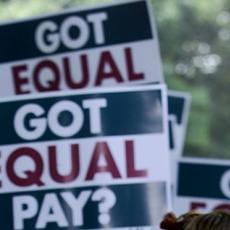Government at the state and federal level seem fixated on the concept of equal pay for equal work. I believe that the great majority of Americans believe in this concept. However, it is difficult to put it into practice. In California the Legislature passed the Paycheck Fairness Act that requires employers to pay employees for “substantially similar work.” Of course, the devil is in the details. What does “substantially similar work” mean? We are told to look at the “composite of skill, effort and responsibility.” That really is of no help. The law basically instructs us to apply multiple factors to the analysis. Here’s the problem — reasonable people can differ when making the analysis. Thus, the legislation creaes ambiguity instead of clear and defined rules. In turn, ambiguity creates litigation, which is expensive, and often unfair.
So now the EEOC is getting into the act. The EEOC already requires employers of 100 or more workers and federal contractors to provide data on race, ethnicity and gender. Beginning this year the EEOC will require covered employers to provide pay data. By requiring employers to self-report this data, the EEOC hopes to find evidence of gender pay discrimination.
The numbers, without further data, are typically meaningless. In fact, the Paycheck Fairness Act implies this by compelling employers to look at skill, effort and responsibility. There are multiple factors that can affect compensation. And if there are not multiple factors, unrelated to gender, that affect compensation, why does the White House pay women approximately 20 percent less than it pays men? Will the EEOC focus on that disparity first? Of course not. The EEOC will come after you.
Paste the link into your browser to read the Paycheck Fairness Act: http://leginfo.legislature.ca.gov/faces/billNavClient.xhtml?bill_id=201520160SB358 or the EEOC explanation of its pay initiative: https://blog.dol.gov/2016/01/29/better-data-equals-greater-pay-equality

